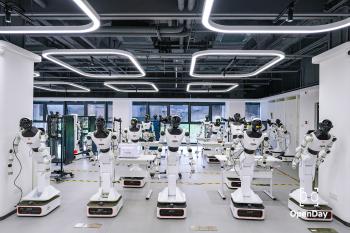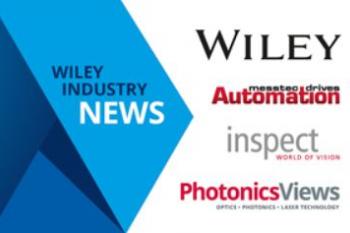Quantum computing: consortium receives 50 million euros in funding
Project based on cooperation between universities, applied research institutions and start-ups
The funding will be used to construct a demonstration and test system for quantum computer chips and other quantum computer components. This will enable the consortium to conduct research into algorithms and technologies for photonic quantum computing and prepare for industrial scale-up. Q.ant, a wholly owned subsidiary of Trumpf, recently presented a method that could be used to fabricate extremely powerful quantum computer chips. By creating highly specialized optical channels on silicon chips, this photonic chip process is able to transport, control and monitor quanta with virtually zero loss, even at room temperature. In future, this will also enable the chips to be used in conventional mainframe computers.
“This funding is a clear indication of Germany’s strength as a hotbed of innovation. We’re on the cusp of the quantum computing era, and the global race to secure market share in this future technology has begun. The funds that have now been earmarked for this research alliance are a key enabler on the path toward building quantum computers in Germany,” says Q.ant CEO Michael Förtsch. Known as “PhoQuant” for short, the research project will run for a total of five years. Q.ant is in charge of the industrial side of the consortium, which also includes 14 other German companies, applied research institutions and universities.
The Paderborn site of the Institute for Photonic Quantum Systems (PhoQS) has significant expertise in the fields of integrated optics and quantum optics, quantum information theory, algorithms and electrical engineering. PhoQS will seek to consolidate this expertise in order to implement, control and characterize large quantum systems for light-based quantum information processing within the alliance. “Over recent years and decades, we’ve carried out some of the world’s most pioneering basic science work in this area of research. For the first time, this project gives us an opportunity to put the results of this work into practice through demonstration set-ups,” says professor Christine Silberhorn from Paderborn University.
The research project involves a total of 14 partners: Q.ant, Paderborn University (UPB), University of Münster, Fraunhofer Institute for Applied Optics and Precision Engineering, University of Jena, Ulm University, HQS Quantum Simulations, Humboldt University of Berlin, Fraunhofer Institute for Photonic Microsystems, Swabian Instruments, TEM Messtechnik, Ficontec, Freie Universität Berlin, and Menlo Systems.
Contact
Q.ANT GmbH
Handwerkstr. 29
70565 Stuttgart
Germany
+49 711 4596-9613
Universität Paderborn
Warburger Str. 100
33098 Paderborn
Germany
+49 5251 60-0








